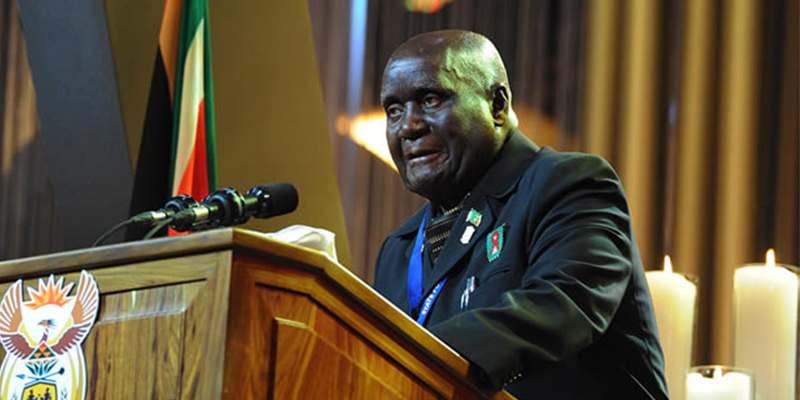This piece was originally published in the Financial Times and is republished in the Elephant with the express permission of the author.
Kenneth Kaunda, Zambia’s founding president who has died aged 97, was a towering figure of African nationalism and the anti-colonial independence movement that swept the continent in the 20th century. For his 25 years in office he fought apartheid, yet was more a victim of southern Africa’s white minority regimes than an instrument of their collapse.
After taking office at independence in 1964, Kaunda banned all political parties except his United National Independence party in 1972. In 1991 he reluctantly conceded multi-party elections, in which he was soundly defeated. Nonetheless, Kaunda ruled Zambia with a rare benevolence in an era of dictatorships and systematic abuse of human rights. His Christian faith, together with socialist values, was at the heart of his doctrine of “Zambian humanism”.
At home, his policies were little short of disastrous economically. Zambia’s all-important copper mines were nationalised shortly before a fall in the commodity’s price, while industries were taken over by an administration short of managers — the country had only a dozen university graduates at independence in 1964 — and newly created state-owned farms proved a failure.
Abroad, his influence never quite matched his rhetoric. He denounced white rule but was inhibited by landlocked Zambia’s dependence on trade through neighbouring Rhodesia and apartheid South Africa. Closure of the border with Rhodesia left his country dependent on a road to the Tanzanian port of Dar es Salaam for its fuel imports. A Chinese-built rail link opened in 1975, but the line never met its potential.
Born at Lubwa Mission on April 28 1924 in what was then Northern Rhodesia, Kenneth David Kaunda was the eighth child of teacher parents. After secondary school he too became a teacher, but in 1949 he gave up teaching to enter politics. By 1953 he was secretary-general of the country’s African National Congress party. Impatient and ambitious, he formed his own party in 1958, which was banned a year later.
In 1960 he took over the leadership of the United National Independence party. It swept to victory in the independence election of 1964, ending Zambia’s legal status as a British protectorate. Almost immediately, Kaunda was confronted by the white Rhodesian rebels’ unilateral declaration of independence on November 11 1965.
For the next 15 years his political life was dominated by the Rhodesian bush war, which spilled over into Zambia. He provided a base not only for Joshua Nkomo’s Zimbabwe African People’s Union but South Africa’s own African National Congress, Namibia’s South West Africa People’s Organisation, the FNLA of Angola and Frelimo from Mozambique.
His frequent tearful warnings of regional cataclysm, invariably delivered while holding a freshly ironed white handkerchief, were heartfelt but ineffectual.
Historical and geographical realities left him with a weak hand.
His decision to keep the border with Rhodesia closed hurt Zambia far more than it did his neighbour, and its eventual reopening in 1973 was a humiliating climbdown. A meeting with John Vorster, prime minister of apartheid South Africa in 1975, achieved little, while his secret talks with Ian Smith, Rhodesia’s white minority leader, served only to sour relations with Nkomo’s rival, Robert Mugabe, who was to win the elections for an independent Zimbabwe in 1980.
Pro-independence events had also left Kaunda at a serious disadvantage. The huge Kariba hydroelectric dam was built on the Zambezi river that formed the boundary with Rhodesia. Its generator was on the south bank, leaving the latter in control of power supplies to Zambia’s copper mines.
Perhaps his finest hour came when he hosted the 1979 Commonwealth conference that helped pave the way to Rhodesia’s transition to an independent Zimbabwe. The highlight was a beaming Kaunda leading Margaret Thatcher around the dance floor.
Trade union-led pressure for an end to the country’s one-party system eventually became irresistible, and in 1991 he conceded to demands for the multi-party poll that led to his ousting.
One of his last public appearances was at the funeral of Nelson Mandela, where he attempted to get the crowd of mourners to join him in a rendition of “Tiyende Pamodzi” (let us pull together), a rousing Unip anthem sung at Unip rallies.
The response was an uncomprehending silence. Kaunda had become disconnected from the Africa that he, Mandela and others had worked to shape.
–
This piece was originally published in the Financial Times and is republished in the Elephant with the express permission of the author.








